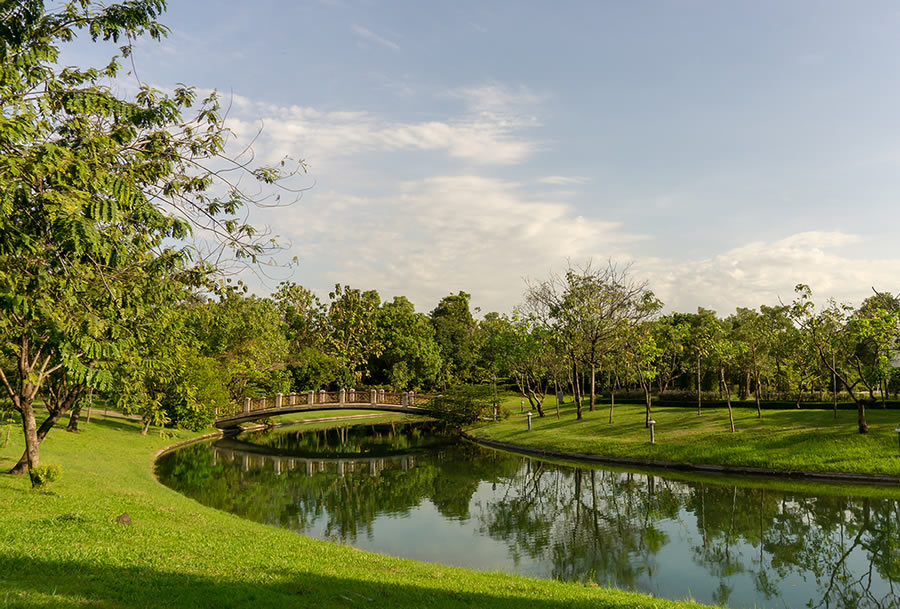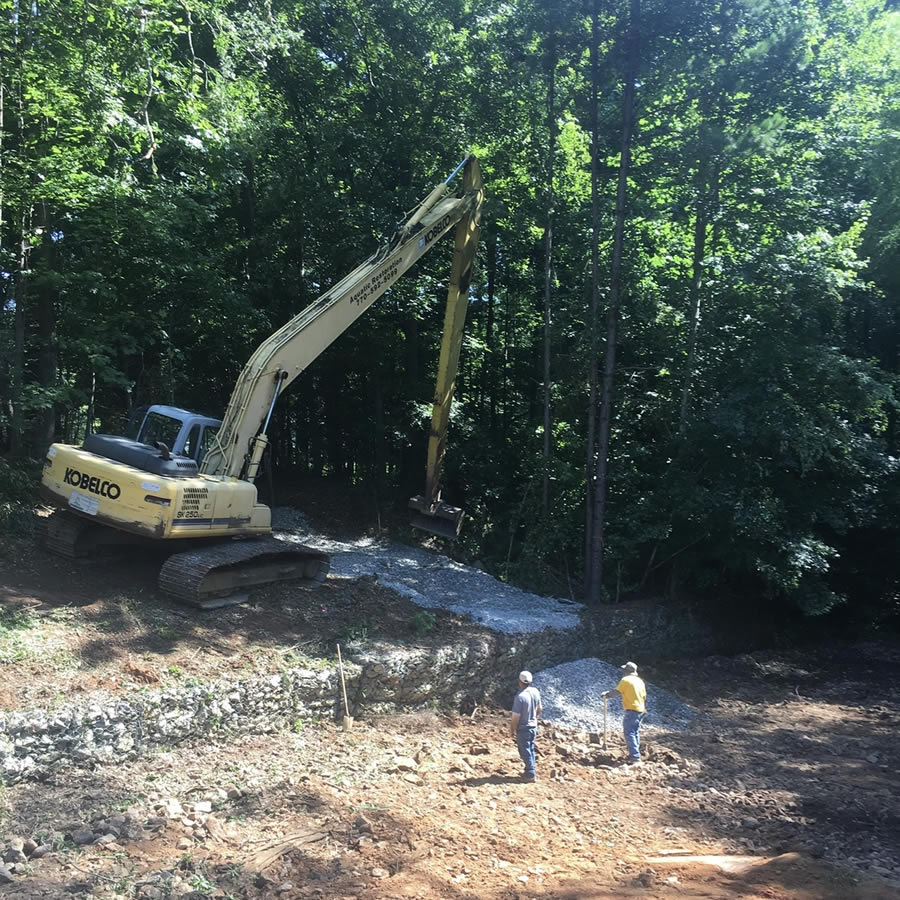
Retention ponds are a vital component of many residential and commercial landscapes. Yet, retention ponds are prone to a range of maintenance challenges. These challenges, if not dealt with promptly and efficiently, can disrupt the pond's functionality and ecological balance. At Aquatic Restoration, we help property owners better manage their stormwater with our wide selection of professional services including retention pond maintenance in Madison, Georgia.
Common Challenges in Stormwater Pond Maintenance
From organic material, silt, and sand, to other particulates carried by stormwater, these sediments accumulate and decrease the pond's water-holding capacity. This problem can result in reduced effectiveness of the pond, with the potential for flooding and diminished water quality.
An overabundance of nutrients, primarily nitrogen, and phosphorus, often triggers excessive algae growth. Algae blooms can deplete oxygen levels in the water, endanger aquatic life, and lead to unpleasant odors.
Excessive nutrient levels stem from runoff containing fertilizers, animal wastes, or other organic materials. These nutrients, particularly nitrogen, and phosphorus, contribute not only to algae blooms but also to poor water clarity and an overall imbalance in the pond's ecosystem.
Structural damage, such as erosion or damage to the pond's liner, can lead to water leakage or a malfunctioning outlet structure. It can disrupt the water balance and pose a risk to nearby properties.
Sediment build-up requires a physical removal process, which typically involves draining the pond, removing the sediment with heavy machinery, and properly disposing of it. This process can be labor-intensive and requires professional assistance. Silt fencing or other erosion control measures can help minimize future sediment build-up.

To control algae blooms, consider biological controls like the introduction of specific fish species that consume algae. Alternatively, chemical treatments using algaecides can effectively manage severe outbreaks.
Managing nutrient levels involves limiting their source, often through better land management practices like minimizing the use of fertilizers and controlling animal waste. Pond aeration can also help by promoting the breakdown of organic matter and reducing nutrient concentration.
Structural damage repair depends on the severity of the issue. Minor erosion might be resolved through the addition of riprap or vegetation, while more significant problems like a damaged liner or outlet may require professional repair or replacement. Routine inspections can help identify these issues early.
Successful retention pond maintenance in Madison leans heavily on preventive measures. Implementing these practices can solve many common problems before they escalate.
Regular inspection is the first line of defense in preventing maintenance issues. Check for signs of erosion, damage to the liner or outlet structure, sediment build-up, changes in water color or clarity, and unusual plant or algae growth.
A sediment and nutrient management plan can help maintain water quality and prevent excessive nutrient and sediment loading. This can involve erosion control measures, regular dredging schedules, and land management practices that limit nutrient runoff.
'Proper vegetation management around the pond can prevent erosion, absorb excess nutrients, and provide habitat for beneficial wildlife. Native plants are often the best choice for this role due to their adaptability and lower maintenance requirements.
For complex issues or larger ponds, professional maintenance services can offer invaluable help. If you need assistance, call Aquatic Restoration. Our team employs problem-specific solutions and focuses on preventive measures to ensure your pond remains functional and ecologically balanced. Contact our office for more details about our services or to schedule an appointment for retention pond maintenance in Madison, GA, or another local neighborhood.
Lake dredging is an integral part of restoring waterways and improving their overall health. This…
Read MoreThere’s no such thing as a maintenance-free retention pond, as much as we’d like…
Read MoreLake and pond dredging is an essential maintenance task that helps to improve water…
Read MoreThere’s a lot that goes into managing a lake. Beyond the aesthetics, it’s important…
Read More